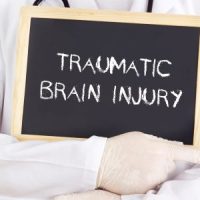Why TBIs After a Car Accident Go Undiagnosed

After a car crash, a victim may suffer physical injuries and seek medical care. However, not all injuries are visible and are treated promptly.
For example, many car accidents result in traumatic brain injuries (TBIs) but they are not always treated. It is especially common for concussions and other mild TBIs to go undetected.
The biggest challenge with TBIs is that their symptoms often resemble those of other conditions and may not appear right away. Someone with a mild TBI might assume their delayed headaches, fatigue, or mood changes are due to stress, PTSD, or even a minor illness, rather than a brain injury.
Diagnosing a TBI accurately requires specialized testing. Without visible signs such as bleeding, fractures, or open wounds, many brain injuries go unnoticed. In busy emergency rooms, where doctors have limited time with each patient, the likelihood of missing subtle TBIs increases even more.
Long-Term Consequences of an Undiagnosed TBI
Although patients trust doctors to recognize serious injuries, mild TBIs are frequently overlooked or misdiagnosed, meaning individuals don’t receive the treatment or rest they need. This can have lifelong repercussions.
Without knowing they’ve suffered a brain injury, a person might resume normal activities too soon. Returning to work, exercising, or playing sports before their body is ready can worsen the damage and increase the risk of cumulative trauma.
The long-term effects of untreated or repeated TBIs can include the following:
- Persistent headaches
- Personality or behavioral changes
- Memory and concentration problems
- Chronic depression or anxiety
- Muscle weakness or slowed physical responses
Treating TBIs
The treatment and recovery process for a TBI depends on several factors, including the location, size, and severity of the injury. While the initial trauma causes immediate harm, much of the lasting damage often results from secondary injuries, such as swelling, reduced blood flow, or chemical changes in the brain. These symptoms may occur hours or even weeks later. Because of this, individuals who receive prompt medical care generally experience the best recovery outcomes.
Genetics can also influence how well a person recovers from a TBI. Research indicates that those who carry the APOE4 gene variant tend to face poorer recovery outcomes following a brain injury.
Age and the number of previous brain injuries are two other factors that can determine a person’s potential for recovery. Newborns, children, and teens may experience faster brain swelling after trauma, which increases risk. Younger adults (ages 20 to 40) are more prone to mood and behavioral changes, while older adults (over the age of 50) are more likely to develop cognitive decline and memory issues.
Contact a Personal Injury Lawyer
After a car crash, it is important to seek medical treatment as well as legal help. Taking these steps will ensure you obtain the physical and financial recovery you need.
A Houston car accident attorney from The West Law Office, PLLC can assist you. We understand the stress and hardships you are facing. Call (281) 347-3247 or fill out the online form to schedule a consultation today.
Source:
ninds.nih.gov/health-information/disorders/traumatic-brain-injury-tbi
